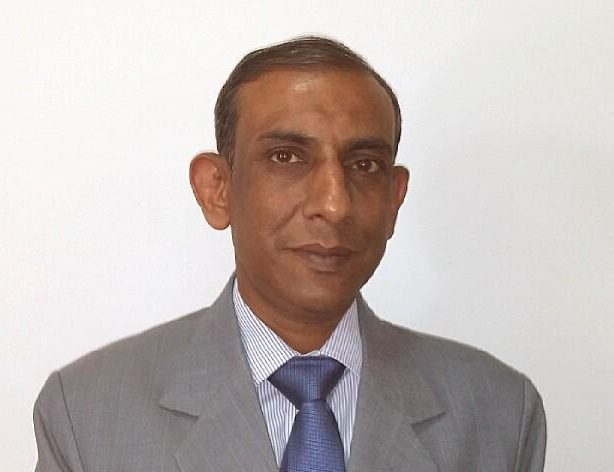Across different Egyptian newspapers, columnists have tapped upon various issues that relate to Mohamed Morsy’s rule. Some writers have condemned the debate over female circumcision; others criticise proposals of the new Justice Minister to reinstate the long-lived emergency law. On another note, some commentators discussed how the deteriorating Tahrir Square is calling upon Egyptians to start shining it up again, being once the epicenter of their political earthquake.
The President’s female consultative
Karima Kamal
Al-Masry Al-Youm newspaper
Omaima Kamel, women’s affairs spokesman for Morsi, linking female genital mutilation with Islam in her first press statement, worries Kamal. The writer recalls the official’s quote “whichever female did not undergo circumcision lacks a complete faith.” Dissecting the quote, Kamal condemns the way the official associates the phenomenon with religion. The columnist argues that the trend has been proven detrimental even in large Islamic countries like Saudi Arabia. She criticises Kamel’s lack of expertise, namely in this field, claiming she is not empowered enough to apprise the President about female circumcision.
In her viewpoint, Egypt is swathed in a bundle of conservative thoughts that belong to the Muslim Brotherhood, one of which is the belief in the benefits of female circumcision. Kamel, the well-known Islamist, misrepresents the phenomenon and strives to speak on behalf of all Egyptian women, as the writer puts it. Statements like this build an impression that Morsy’s group focuses on imposing their ultra-conservative social agenda on the public. Ending her column, Kamal notes that appointing inexperienced officials such as Kamel negatively reflects on the entire societal structure. She calls upon all recently appointed officials to digest social issues before issuing their statements, especially if they plan to directly relate them to Islam.
Morsy in the street and the church
Fahmy Howeidi
Al-Shorouk newspaper
In appraisal of Morsy’s performance of Friday prayers in different mosques across the country, Howeidi still wishes to see the president paying similar visits to churches. Speaking about being a president for all Egyptians requires more actions from Morsy than sugarcoated words. Since winning the presidency, Howeidi estimates that Morsy’s holding of his responsibility towards the Coptic community has not been up to the standard. A trip to the Cathedral should have been on the top of his to-do list once becoming a president. It is understandable, though, that Morsy’s visit to the Cathedral has been postponed due to Pope Shenouda’s death, but he could have paid a substitute visit to any of the large monasteries.
In Howeidi’s opinion, it is vital that Morsy doubles his efforts to refute to the minority community’s claims that his association with the Muslim Brotherhood is swallowing up his thoughts. It is imperative that the presidency as an institution would not only fortify relations with the various political forces in the scene, but also with primary religious bodies. Wrapping up his column, Howeidi commends Morsy’s visit to Sinai after the death of army officers, and repeats his concerns that his ignorance of the Coptic community will lead to complications.
It is time to restore Tahrir Square?
Emad Al-Din Hussein
Al-Shorouk newspaper
In an attempt to portray the current deteriorating situation in Tahrir Square, Hussein asks if it is too late to restore the square’s glamour and enthusiasm. Describing the scene in Tahrir, the writer censures the ‘coalition of street vendors’ filling the square. The writer argues that if sellers occupy Tahrir in an attempt to generate their daily income, then their illegal presence in the square has led to the existence of many unwelcome thugs. Hussein then cites a situation where a thug robbed a citizen standing in Tahrir and flees away with his phone. A police officer was heard expressing his annoyance towards the excessive repetition of situations such as this. ‘When will the state clean up the square?’ the officer asked. The writer responds that it is the duty of all Egyptians, who have ousted a regime from this place, to start burnishing the square up.
It is the right of all demonstrators, whether they belong to a political group or not, to have a clean available Tahrir Square to practice their basic democratic rights. Irregularities have reached their peak in the square, Hussein notes. Cars can be seen driving in reverse within the square’s main routes, where chaos is likely to erupt with the probability of fights between street sellers. Finally, the writer asks why haven’t the Ministry of Interior or the recently-appointed government started drafting a plan yet to clean up the square. The once-revolutionary location has now become appalling.
A veil on the screen
Emad Al-Din Adeeb
Al-Watan newspaper
The appearance of the first Egyptian veiled newsreader pushed Adeeb to affirm that basic media ethics should not set limits on anchors looks. A veiled female TV presenter or a bearded male anchor don’t change the meaning of the messages sent via several media tools. High work quality and appealing performance shall always be the criteria to evaluate any media professional, in Adeeb’s viewpoint. The writer states that the move has shaken the media sphere and prompted many to question whose mistake it was to brush off veiled TV presenters from appearing on screens.
In the writer’s viewpoint, it is not Salah Abdel Maksoud’s – the current Minister of Media- omission to open the room for females to appear with their headscarves. The writer’s argument rests on the conviction that probably it has been the fault of the former Minister of Media for pushing away such presenters in the first place. Adeeb states that the decision to have a veiled TV presenter limited the general picture to a meaningless battle between the conservative Muslim Brotherhood and their opponents. Concluding his column, Adeeb states that Egyptian media should not set the limits of presenters to perform their job on the basis of religion, gender, ideology, or representation. Egyptian channels should always embrace all sorts of media professionals and hosts, all in a one bundle.
Mekky’s emergency
Salah Hassaballah
Al-Watan newspaper
Addressing the recent debate over the draft emergency law, Hassaballah criticises the new Justice Minister for proposing to reinstate the statute. Despite the writer’s optimistic feeling that accompanied the appointment of Mekky as the new Justice Minister, Hassaballah argues that the official will remain associated with the Muslim Brotherhood. All justifications demonstrated by Mekky while debating the issue of the 30-year-old emergency law sound insensible to a post-revolutionary Egypt, in Hassaballah’s opinion. Mubarak was claiming that a state of emergency was the way out of terrorism in Egypt. Scrutinising the situation now, the writer condemns the Muslim Brotherhood’s justifications as similar to those of Mubarak. The group thinks of the law as an acting shield against the rising thuggery in Egypt.
The newly-suggested emergency law involves more than regulations that limit freedoms of ordinary Egyptians, in Hassaballah’s viewpoint. It rather helps in restoring the dark 30 years of Mubarak, where almost all human rights and personal freedoms were constantly threatened and breached. Finally, the writer chides Mekky for not only recommending a law like this, but for showing up to attack the media and state by saying “this is a lying press and the entire media institution is currently deteriorating.” Mekky’s influence has passed beyond the emergency law to accuse Egypt’s media of being corrupt and biased.







